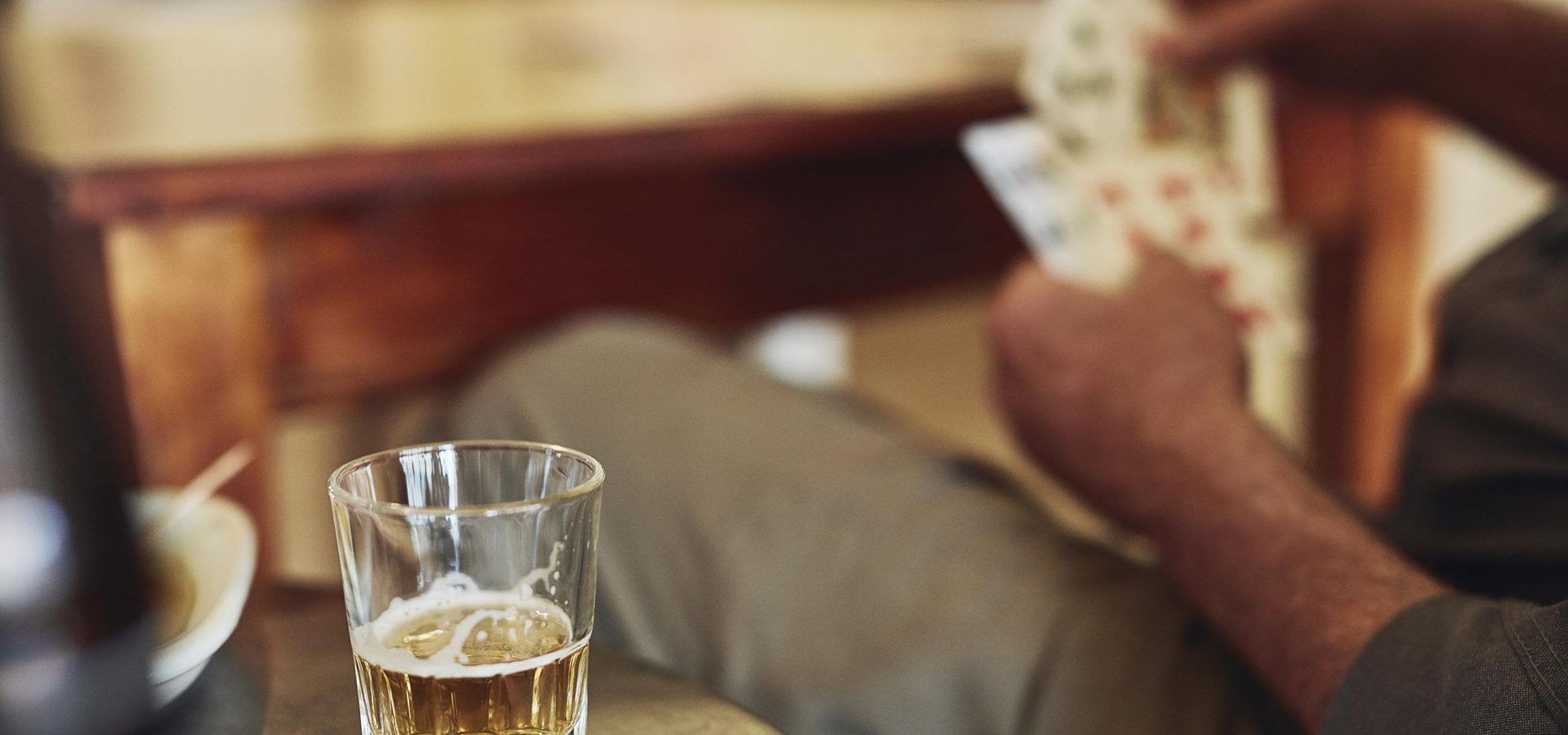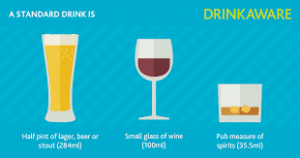News
Stay Safe at Home, but Alcohol is not a Coping Mechanism

In a recent letter to the Irish Times, a contributor wrote: “Sir, – For God’s sake, open the pubs again before we all become alcoholics.” With people cooped up in their homes and with little to do, it is no suprise that alcohol sales are up. Many cite drinking as a coping mechanism.
Here, Tackle Your Feelings campaign manager and Sports Psychologist Dr Hannah McCormack examines the wider impact of excessive drinking at this time.
“I’ve had a hard day – I think I’ll have a drink.”
How many times have we thought about drinking in those terms? We often turn to alcohol to mark an occasion, good, bad, or indifferent. It is common vernacular to ‘raise a glass’ to someone’s success or ‘drown our sorrows’ when things don’t go our way. We even ‘wet the baby’s head’ to celebrate new life. In recent weeks, the unexpected sunshine and longer evenings may have tempted more people to relax with a few ‘cold ones’…
There is nothing wrong with having the occasional drink. In fact, there is scientific research to show that there may be some benefit to drinking alcohol. Such benefits include reducing the risk of heart disease, ischemic stroke (where the arteries in your brain become narrowed or blocked reducing blood flow), and the chances of developing type II diabetes.
However, this research is not conclusive. It relied on participant recall while the alcohol consumption was accompanied by a healthy lifestyle and diet. Above all, consumption was also moderate – for most people, therein lies the rub: what is moderate drinking?

Moderate Drinking?
According to the HSE’s website askaboutalcohol.ie, the low-risk guidelines for drinking are 17 standard drinks per week for men. For women this equates to 11 standard drinks. More importantly, that these drinks are spread out over the course of a week which comprises at least 2-3 alcohol-free days.
When it is laid out in this way, you might think that 17 or 11 drinks is a decent amount, however we also need to understand what one standard drink is. One standard drink is a small glass (100ml) of wine. Bear in mind that one 750ml/75cl bottle of wine contains seven and a half (7.5) standard drinks.
One standard drink is also half a pint of lager, beer, or stout or 284ml. A small can or bottle of beer holds 330ml, or 1.16 standard drinks per can or bottle.
For spirits, a standard drink is a pub measure of 35.5ml – I will let you work out how many drinks are in your bottle of gin or vodka yourself!
askaboutalcohol.ie also recommend that these drinks are spread out over the week and that we do not consume the weekly guidelines all at once. Broken down, it is suggested that one 100ml glass of wine a day, or one pint of beer, stout or larger is adequate, however we should remember to keep at least two days per week free from alcohol.
Guideline Purpose
When we drink alcohol excessively, it can have a detrimental effect on our overall health and wellbeing. From a physical point of view, alcohol is highly dense in calories and contains high quantities of sugar. It is also a known contributor to heart and liver disease, high blood pressure, cancer and dementia.
Alcohol can have long term effects on our mental health too. But even in the short term, consuming alcohol can negatively impact our mental wellbeing by causing anxiety and stress, slowing our reflexes, and impairing judgement. The World Health Organisation (WHO) has also cautioned that alcohol consumption can exacerbate health vulnerability, risk-taking behaviors and violence.
Drinking alcohol can cause drastic mood changes, contribute to bad skin, and weight gain (which can contribute to loss in self-esteem) and contrary to popular belief, alcohol impairs our ability to fall asleep and have a restful night sleep.
Staying Safe at Home
Much of what has been outlined should always be taken into consideration. However, amidst a global pandemic that has enforced restrictions on our lives, it is important to be even more mindful of our drinking habits.
While we adjust to a new normal, albeit temporarily, many people may find themselves drinking a little more frequently than usual. This stems from the boredom of being at home and having to socialise with very little real-life contact with people outside of those we live with.
These are extraordinary times, through which nobody has ever lived before. Some having been found it more difficult than others but everybody has been trying to find their own way. Stategies have ranged from baking and posting on TikTok to reading and chasing fitness goals. While we all may have adopted individual pursuits, alcohol consumption ranks highest in common approaches to the lockdown.

Whether it serves as a reward (I made it through another day!), arises out of convenience (sure it’s right there) or helps us connect to others (Zoom and wine anyone?/Houseparty and prosecco?/ Fortnite and a few cans?), alcohol consumption has gone up. Over the past month almost €160 million has been spent on take-home alcohol, 40% higher than last year.
It’s easy to explain why – we are drinking at home and there is less responsibility attached; in effect we pay for our drinks (although we have paid to buy them in the first place but it’s cheaper than on a night out); nobody is watching and judging our drinking and we have the freedom to pour our own measures of wine or spirits.
There may even be some added peer pressure to have a drink with someone you live with or with friends and teammates over an online conference call. Using alcohol as a coping mechanism for the uncertainty or anxiety being experienced will not help, rather it will exacerbate the issue and may even lead to other problems.
Online Help
I am not saying to cut out alcohol altogether, rather, be more mindful of the amount you are drinking. Stay within the recommended guidelines for low-risk drinking. There are ways to easily keep a handle on your alcohol consumption, one being a very handy free app called Drinks Meter
Drinks Meter allows you to input the amount taken in a week and gives you an analysis of your alcohol consumption in terms of: units of alcohol and number of standard drinks, calories and equivalent food intake, money spent, and rates the days you did drink as either low risk, mid-risk or higher-risk. It also provides more in-depth information around drinking and its resultant effects and risks. Additonal information can also be found on the HSE website askaboutalcohol.ie.
If you feel you have increased your alcohol consumption due to increased stress or anxiety, have a look at an article recently written about dealing with anxiety by eminent Irish psychologists Mark Smyth and Niamh Fitzpatrick – click here.
There are also additional coping and positive mental wellbeing tools available on the Tackle Your Feelings app and on tackleyourfeelings.com
If you feel that you may need to speak to someone about anything raised in this article, you can find multiple resources on the Need Help section of the Tackle Your Feelings app and website. You can also contact your Player Development Manager.
Most importantly, remember that these are unprecedented times. We may not have control over what is going on around us, but we do have control over the habits that we practice. The habits that we put in place now will have an influence on our current health as well as our future health. Be mindful of what you are doing (drinking included) and be kind to yourself and to others.
Back to News
Latest Posts

Inaugural Past Players Padel Tournament

The Ireland Sports Fund

Making Tracks
















